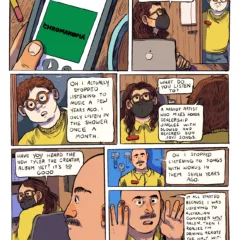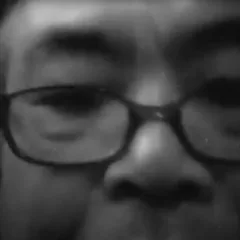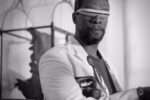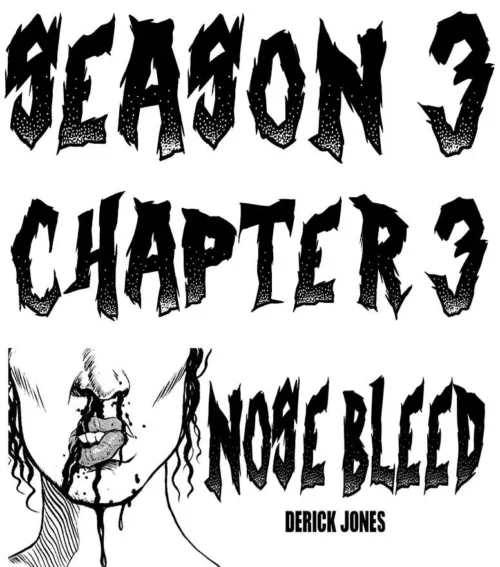[Donald checks out Robert Glasper earlier this month, admiring the way the musician and his group put a fresh spin on the jazz genre. — the Artblog editors]
Philadelphia has gotten a nice dose of Robert Glasper throughout the year of 2014. In January, he performed with Jill Scott and the Philadelphia Orchestra for their annual Academy of Music Gala Concert. Next, in July, came a performance with Babyface and Anthony Hamilton at the Dell East. Finally, here we are in December with the Robert Glasper Experiment in full force at the World Café Live on Dec. 9.
About Glasper
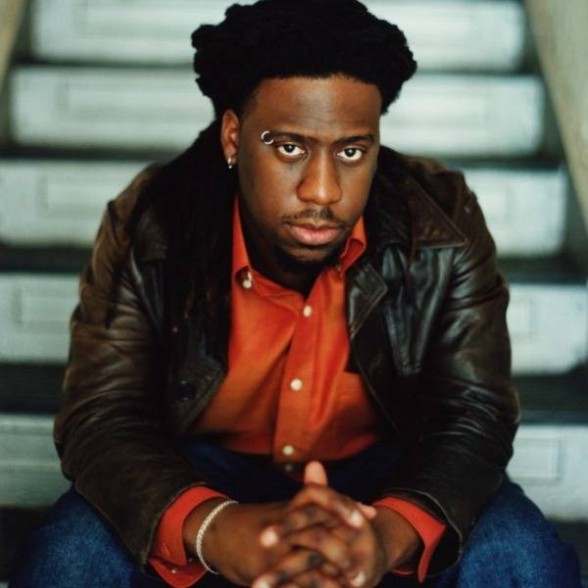
The Houston-bred Glasper is a jazz pianist who attended the High School for the Performing and Visual Arts (Beyoncé attended this school as well) and the New School for Jazz and Contemporary Music: one of the best jazz schools in the world. Glasper then took all of his incredible training and made music on his own terms without being constrained by how jazz “should” be interpreted in the 21st century.
Glasper has released several albums, highlighted by 2012’s Black Radio and 2013’s Black Radio 2. The greatness in the Black Radio albums lies in the willingness to merge neo-soul, hip-hop, and indie rock with jazz. Miles Davis first meshed hip-hop with jazz, and now Glasper is expanding upon that sound. These two albums are also notable for having renowned artists like Erykah Badu, Ledisi, Emeli Sande, and Common provide guest vocals. Black Radio won the Grammy award for Best R&B Album in 2013 and Black Radio 2 received Grammy nominations on Dec. 5 for Best R&B Album and Best Traditional R&B Performance (“Jesus Children”).
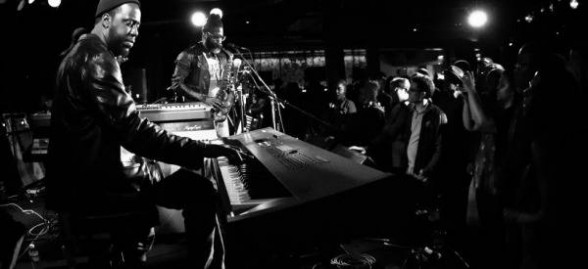
A versatile, multilayered show
When the Robert Glasper Experiment stepped out on the stage, it couldn’t have been more of an understated arrival. It took a good three extra seconds for the crowd to realize that it was indeed who they paid to come and see. In addition to Robert Glasper, the Experiment consists of Casey Benjamin (vocals, soprano saxophone, synthesizer), Derrick Hodge (bass), and Mark Colenburg (drums, percussion).
“Baby Tonight,” the opener from Black Radio 2, also opened the group’s World Café Live set. Before they began, Glasper instructed the audience’s women to let out their ooohs and ahs when the first chord was played. It’s safe to say that the women would have reacted that way no matter what, due to Glasper’s lush, yet technically proficient playing. Other songs performed included “I Stand Alone,” a brilliant cover of Daft Punk’s “Get Lucky,” and the crowd-pleasing “Ah Yeah”. I appreciated how certain songs would seemingly fade out and end, only for them to instantly come back as a reprise.
The performance of the night was “Let It Ride,” which in my opinion is the best track on Black Radio 2 (Norah Jones sings on the album version and has never sounded more alluring). What they capture so well with this track are the layers. The hard and static drum patterns, smoothly played piano chords, and sweet vocal melody make for a musically delicious three-layer cake.
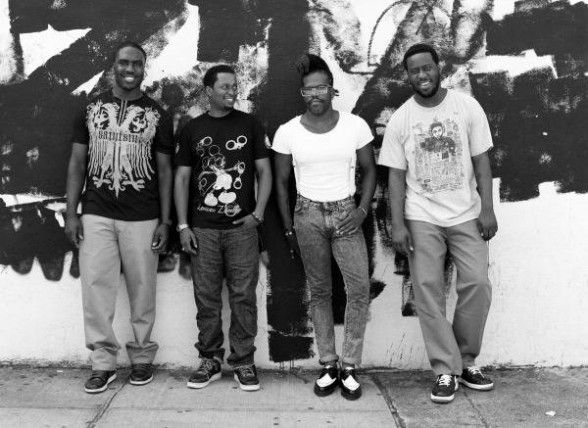
Throughout the set, each of the instrumentalists had their own extended solo break while their fellow bandmates took a breather. The most memorable solo was Hodge’s, as he implemented some phrases of “Little Drummer Boy” and “Chestnuts Roasting On an Open Fire” that the audience recognized in unison. Benjamin sang all of the hooks on a vocoder that made for a nice change of pace from the clean-cut singing to which listeners are accustomed on the recorded versions (although some lyrics weren’t discernible due to the heavy reverb on the vocoder). Benjamin has an eccentric stage presence, with a hairstyle straight out of the George Clinton/Parliament Funkadelic lookbook to boot. He does a uniquely funny thing when he sings in that he constantly shakes his face, especially when he’s sustaining notes.
Glasper moves past the notion of jazz music being a historical genre; he is intent on jazz not being boring. Many jazz musicians are so stuck on trying to be Charlie Parker or John Coltrane that they lose the opportunity to take the music to a new place. In 2015, music listeners will have a wider taste for all types of music than ever before, and Glasper’s music represents that to a full extent.
For more information on the Robert Glasper Experiment, click here or check out his Facebook and Twitter.


